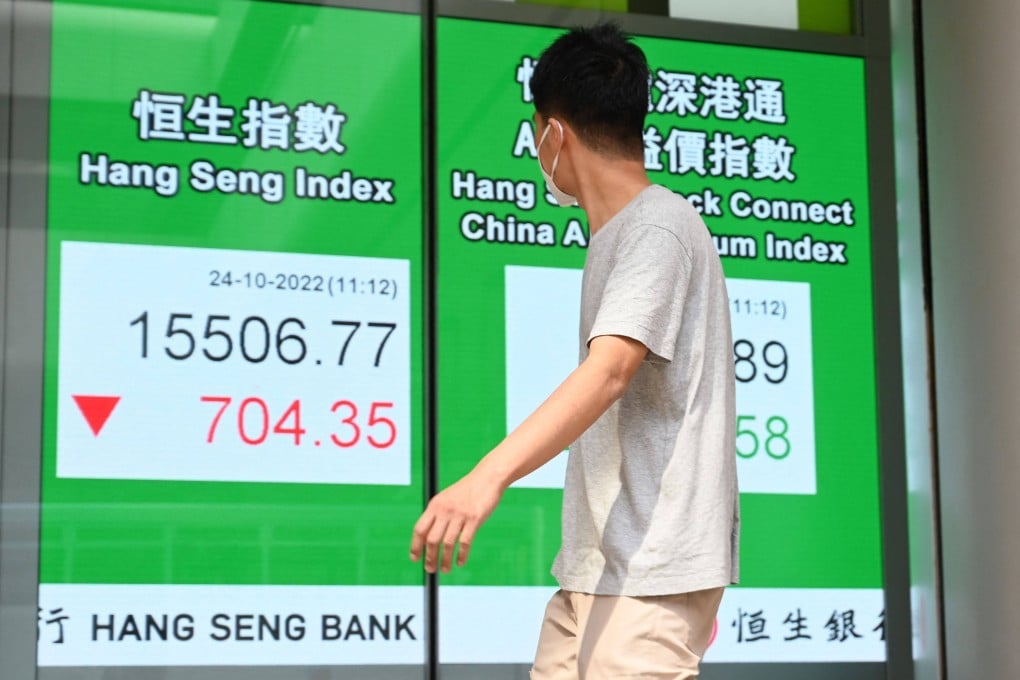Advertisement
Macroscope | Why investors should see silver lining in China’s plunging markets and stick around
- Investor sentiment towards China has taken a beating recently, with stocks plunging and little sign of an end to Beijing’s ‘zero-Covid’ policy
- China is not the top driver of global volatility, though, and investors’ desire for clear policy signals suggests there is eagerness for positivity on China
Reading Time:3 minutes
Why you can trust SCMP
5

Can investor sentiment towards China get any worse? Even before the dramatic sell-off in response to President Xi Jinping securing an unprecedented third term at the Communist Party’s 20th national congress – where Xi packed China’s top leadership with his team of loyalists and prioritised national security and politics over economic reforms – Chinese assets were under heavy selling pressure.
Yet, even the most bearish investors were taken aback by the scale of the price declines last week. On October 24, foreign investors sold a record US$2.47 billion of mainland stocks, causing an index of Chinese shares traded in Hong Kong to plunge 7.3 per cent. A gauge of Chinese shares listed in the US suffered even steeper falls and at one point was down a staggering 21 per cent.
By the end of last week, the Hang Seng China Enterprises Index had become the world’s worst-performing stock market this year.
Advertisement
What is more, the renminbi had fallen to its weakest level versus the US dollar since the currency began trading outside China’s borders, while the streak of outflows from Chinese onshore bonds showed no signs of abating.
The rout in mainland and Hong Kong-listed stocks since their peak in February 2021 is now on a par with the losses suffered during the 2008 financial crisis, according to Bloomberg data. Concerns that China has become “uninvestable” – which intensified last year following Beijing’s sweeping regulatory crackdown – have become more acute among international investors.
Advertisement
According to Robin Brooks, chief economist at the Institute of International Finance, markets are “looking at China in a new light”. The combination of escalating geopolitical tensions, deep misgivings about Xi’s “common prosperity” agenda, the festering crisis in the housing market and, crucially, the disruptive “dynamic zero-Covid” policy has caused significant damage to the two main underpinnings of the investment case for Chinese assets: stability and growth.
Advertisement
Select Voice
Select Speed
1.00x
